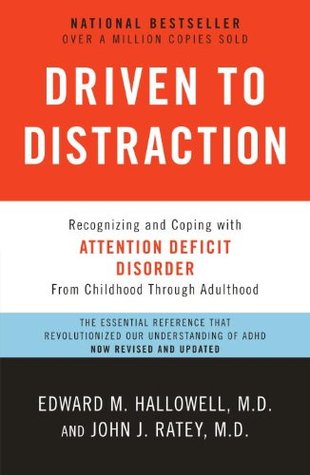More on this book
Community
Kindle Notes & Highlights
Read between
February 2 - June 29, 2025
I was particularly interested in Dr. Barkley’s comment that ADD is more impairing than any syndrome in all mental health that is treated on an outpatient basis. More impairing than anxiety, more impairing than depression, more impairing than substance abuse. The “morbidity” of untreated ADD is profound. Twenty-five percent of the prison population has undiagnosed ADD. Most of the kids in the juvenile justice system have untreated ADD. Traffic accidents are eight times more common than in the general population. If you have ADD, you are 40 percent more likely to get divorced than if you don’t,
...more
ADD was often found in particularly creative, intuitive children. “Lots of kids who have ADD also have something else, something we don’t have a name for, something good. They can be highly imaginative and empathic, closely attuned to the moods and thoughts of the people around them, even as they are missing most of the words that are being said.
What differentiates their need for structure from everybody’s ordinary need for it is a matter of degree. They need it a lot, and they need it often.
The world really should know about ADD.”
On the other hand, after the initial phase of treatment, the struggle usually does not end. For some lucky people it does, but for most people ADD continues to pose problems daily. While the treatment helps with the symptoms, it does not eradicate them. The ADD does not go away. It cannot be surgically removed. If one has it as an adult, one has it for life.
Always bear in mind the positive aspects of ADD—energy, creativity, intuition, good-heartedness—and also bear in mind that many, many people with ADD do very well in life.
First of all, people with ADD have a greater tolerance of chaos than most.
As mentioned earlier, the term “attention deficit” is a misnomer. It is a matter of attention inconsistency. While it is true that the ADD mind wanders when not engaged, it is also the case that the ADD mind fastens on to its subject fiercely when it is engaged.


